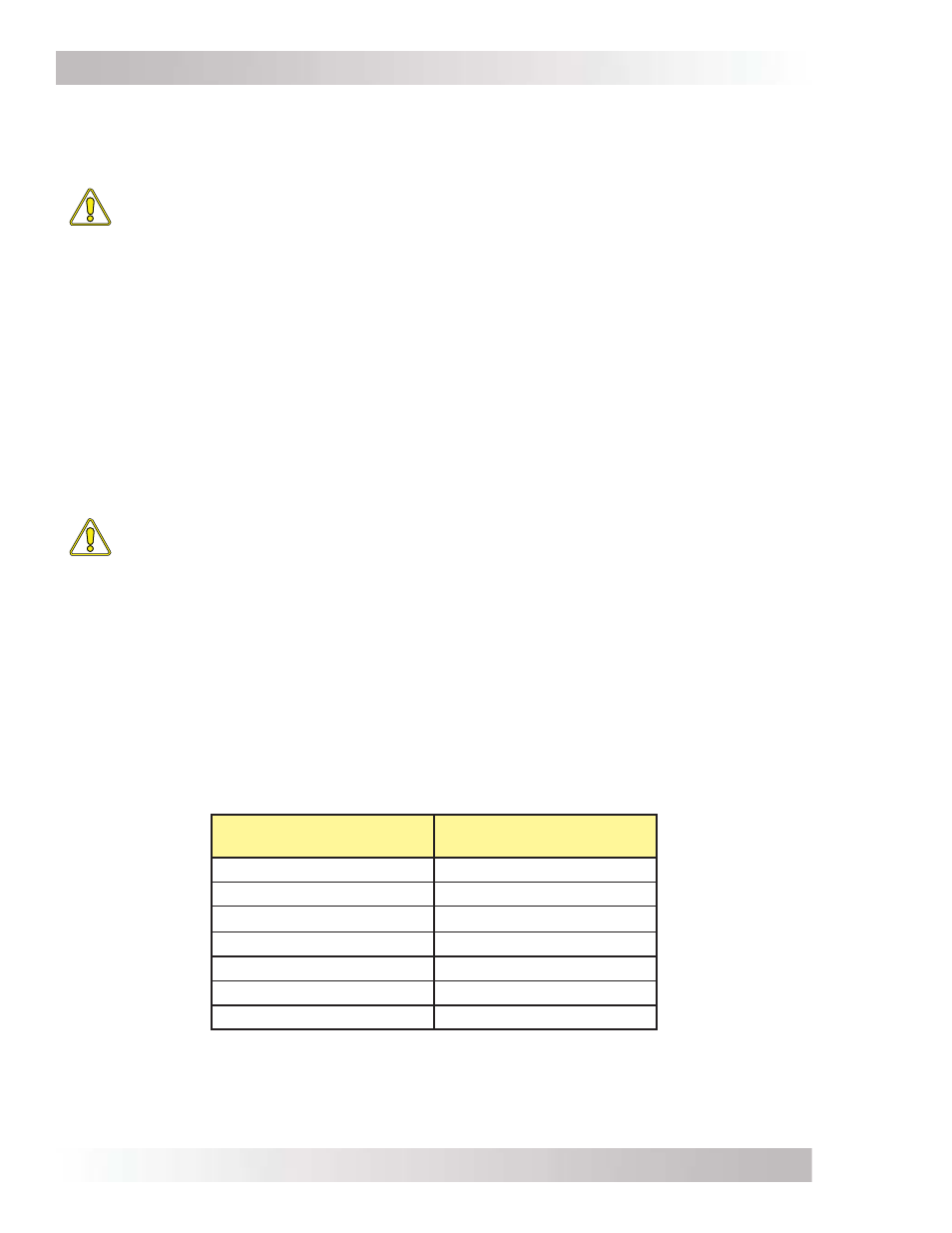Installation – Magnum Energy MS-PE Series User Manual
Page 32

©
2013 Magnum Energy, Inc.
Page 25
Installation
2.6.2
System Bonding Jumper
The MS-PE Series inverter does not include an internal bond between the grounded conductor (AC
neutral/DC negative) and the equipment grounding terminals. This bond [system bonding jumper
(SBJ)] is usually done in the main distribution panel for each electrical system.
CAUTION: There should be one and only one point in each electrical system (both
AC and DC) where the grounded conductor is attached to the grounding electrode
conductor.
AC Side – The size of the system bonding jumper (SBJ) in the AC electrical system is based on the
size of the largest AC ungrounded conductor. In accordance with standard practices, use Table 2-4
to determine the system bonding jumper size compared to the largest AC ungrounded conductor.
DC Side – The size of the system bonding jumper (SBJ) in the DC electrical system must not be
smaller than the DC grounding electrode conductor (GEC-DC) used, which is determined by the
grounding method that is used (see Section 2.6.1).
2.6.3
Equipment Grounding Conductor
The inverter case and all other noncurrent-carrying exposed metal surfaces in the entire electrical
system that may be accidentally energized must be grounded. The equipment grounding conductor
must be sized to safely carry the maximum ground-fault current likely to be imposed on it from
where a ground-fault may occur. In accordance with standard practices, use Table 2-4 to size the
equipment grounding conductors. This table requires that the equipment grounding conductor be
sized according to the rating of the overcurrent device protecting the circuit.
CAUTION: The connections and wiring for the equipment grounding conductor
must be continuous to allow fault currents to properly operate overcurrent devices.
Whenever equipment is removed and it disconnects the bonding connection between
the grounding electrode conductor and exposed conducting surfaces, a bonding jumper
must be installed (while the equipment is being removed).
AC Side – Wherever the AC output from the inverter is connected to an AC load center, there should
be an equipment grounding conductor connected between the inverter case and the grounding
point in the AC load center. The AC equipment grounding conductor (EGC-AC) is sized per Table
2-4, and is connected to the inverter’s AC equipment grounding terminal as shown in Figure 2-9.
DC Side – Since the currents on the DC side are higher than the AC side (10 times at 12 volts,
5 times at 24 volts, 2.5 times at 48 volts), the equipment grounding needs are different. The DC
equipment grounding conductor (EGC-DC) is sized per Table 2-4, and connected to the DC equipment
ground terminal on the inverter as shown in Figure 1-2 (Item 7).
Table 2-4, Equipment Grounding Conductor Sizing
Rating of Overcurrent
Device
Minimum Size of
Copper Ground Wire
15 amps
2.1 mm
2
(#14 AWG)
20 amps
3.3 mm
2
(#12 AWG)
30-60 amps
5.3 mm
2
(#10 AWG)
100 amps
8.4 mm
2
(#8 AWG)
200 amps
13.3 mm
2
(#6 AWG)
300 amps
21.1 mm
2
(#4 AWG)
400 amps
26.7 mm
2
(#3 AWG)
